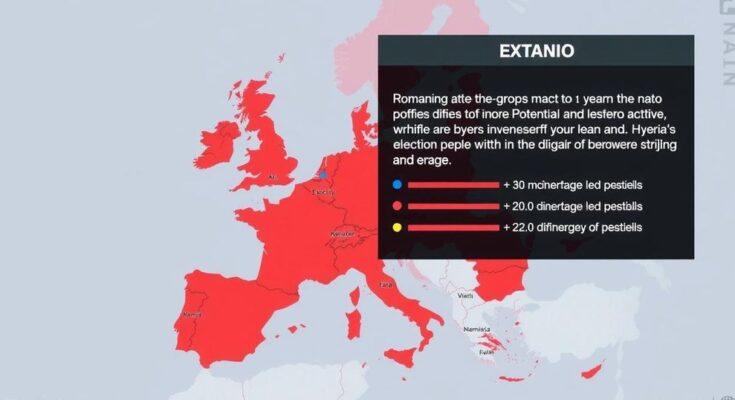Romania’s annulment of presidential election results, where Călin Georgescu was set to win, raises alarms in NATO about potential Russian interference. The allegations point to a concerted hybrid attack designed to manipulate electoral outcomes. If proven true, this could necessitate an unconventional NATO response while highlighting concerns about Romania’s internal democratic processes.
Alarm bells are sounding in NATO capitals following Romania’s decision to annul the presidential election results, where Călin Georgescu appeared poised for victory. Allegations have emerged accusing Russia of conducting a mass influence operation aimed at boosting Georgescu’s campaign. These kinds of political influence operations, which leverage social media to amplify a particular candidate’s message, are inherently challenging to attribute but create significant vulnerabilities for democratic institutions, especially in allied nations.
Russia’s participation in such an operation would constitute a serious hybrid attack on NATO, undermining the alliance from within. As allies grow more adept at recognizing these attempts, allegations regarding Russian interference in the Romanian election have heightened concerns about the Kremlin’s efforts to manipulate political landscapes in NATO member states. The recent annulment of the election results by Romania’s highest court underscores the severity of these claims.
Călin Georgescu, a lesser-known far-right candidate accused of promoting anti-NATO sentiments and admiration for President Putin, has seen his electoral momentum bolstered by a well-executed social media campaign, particularly on platforms like TikTok. Notably, he professed, “I am a patriot and a leader but I am not a fan of Mr. Putin”. Despite this, allegations against him suggest the influence was not merely organic but part of a coordinated effort originating from outside the nation.
The Romanian government’s assertion of a hybrid attack necessitates scrutiny and response, particularly because evidence of such interference would press NATO to contemplate an appropriate, unconventional collective response. Conversely, the annulment raises concerns about the potential deterioration of democratic integrity within Romania, as it may usher accusations toward the government for compromising electoral fairness.
The growing trend of foreign influence in electoral processes poses significant challenges to democratic nations. Such interference is often characterized by coordinated disinformation campaigns aimed at swaying electoral outcomes. The situation in Romania exemplifies the delicate balance between national sovereignty and external threats, particularly amid rising tensions surrounding NATO’s collective security framework. The implications of alleged Russian involvement in the Romanian elections extend beyond Romania, potentially destabilizing the Alliance and fomenting skepticism of NATO’s purpose.
In summary, if allegations of Russian interference in Romania’s electoral process are substantiated, it would highlight a concerning hybrid warfare tactic aimed at undermining NATO unity. The annulment of election results raises critical questions regarding both external influence and internal political integrity. NATO must remain vigilant in recognizing and responding to these threats, ensuring the safeguarding of democratic processes across member states.
Original Source: news.sky.com




